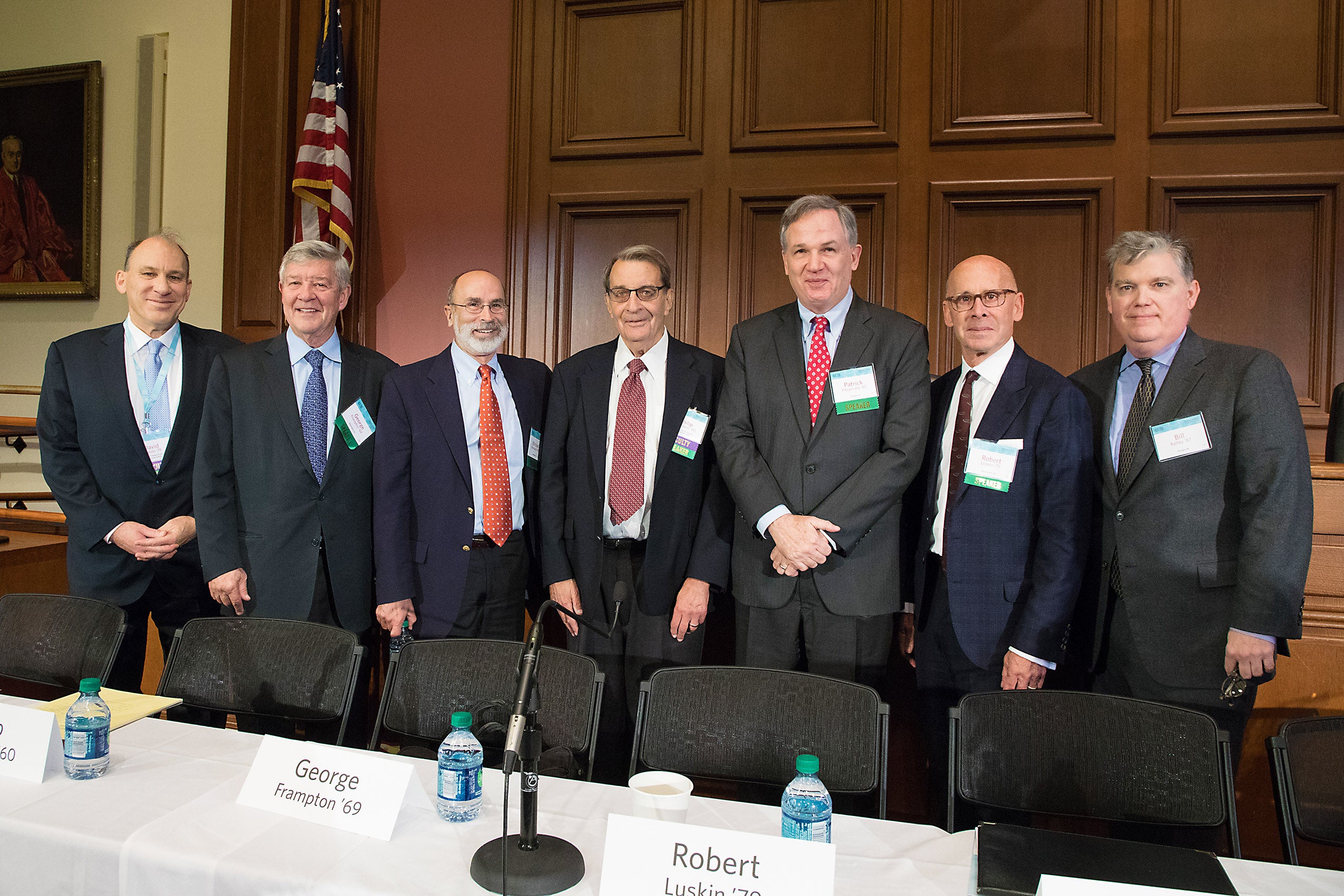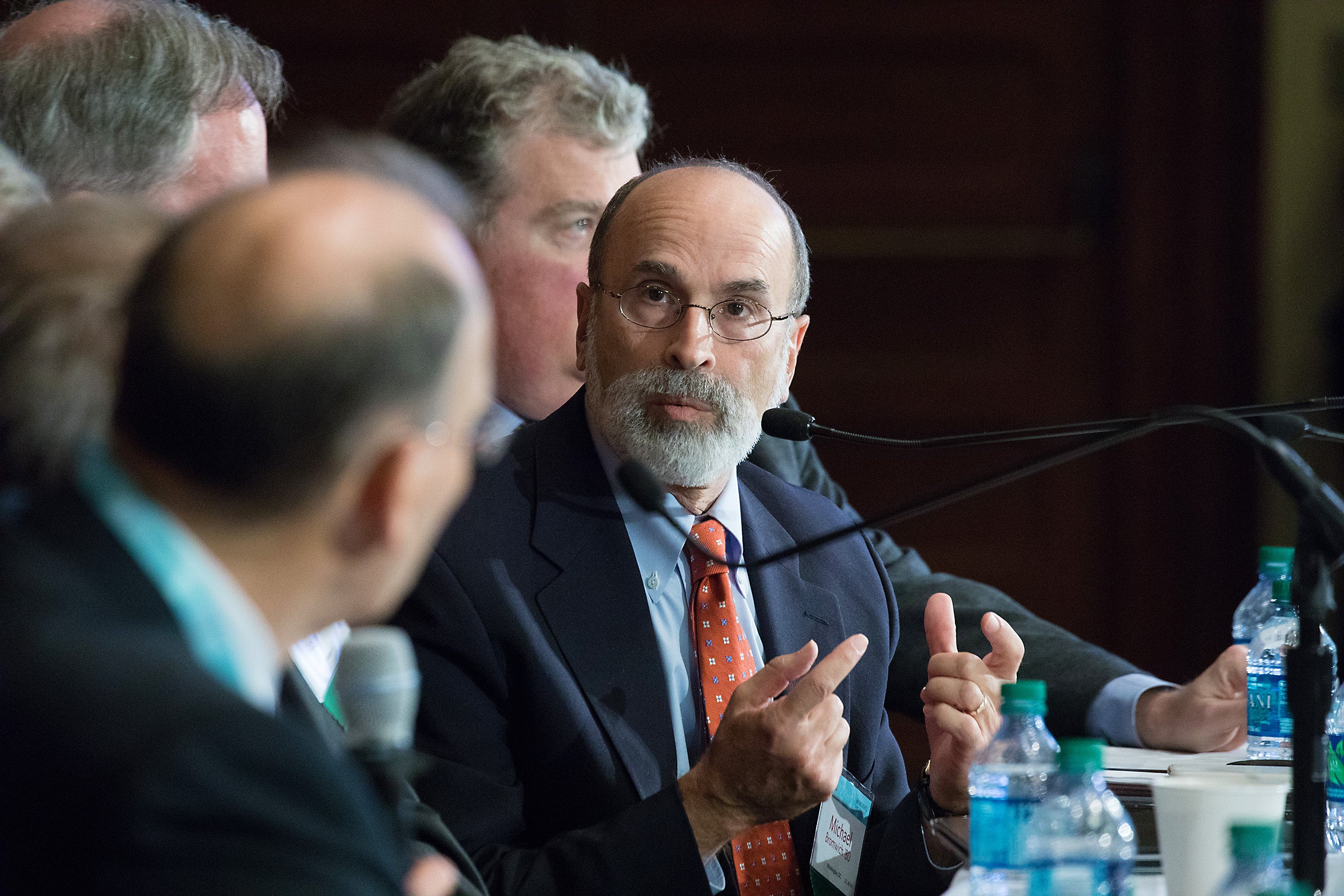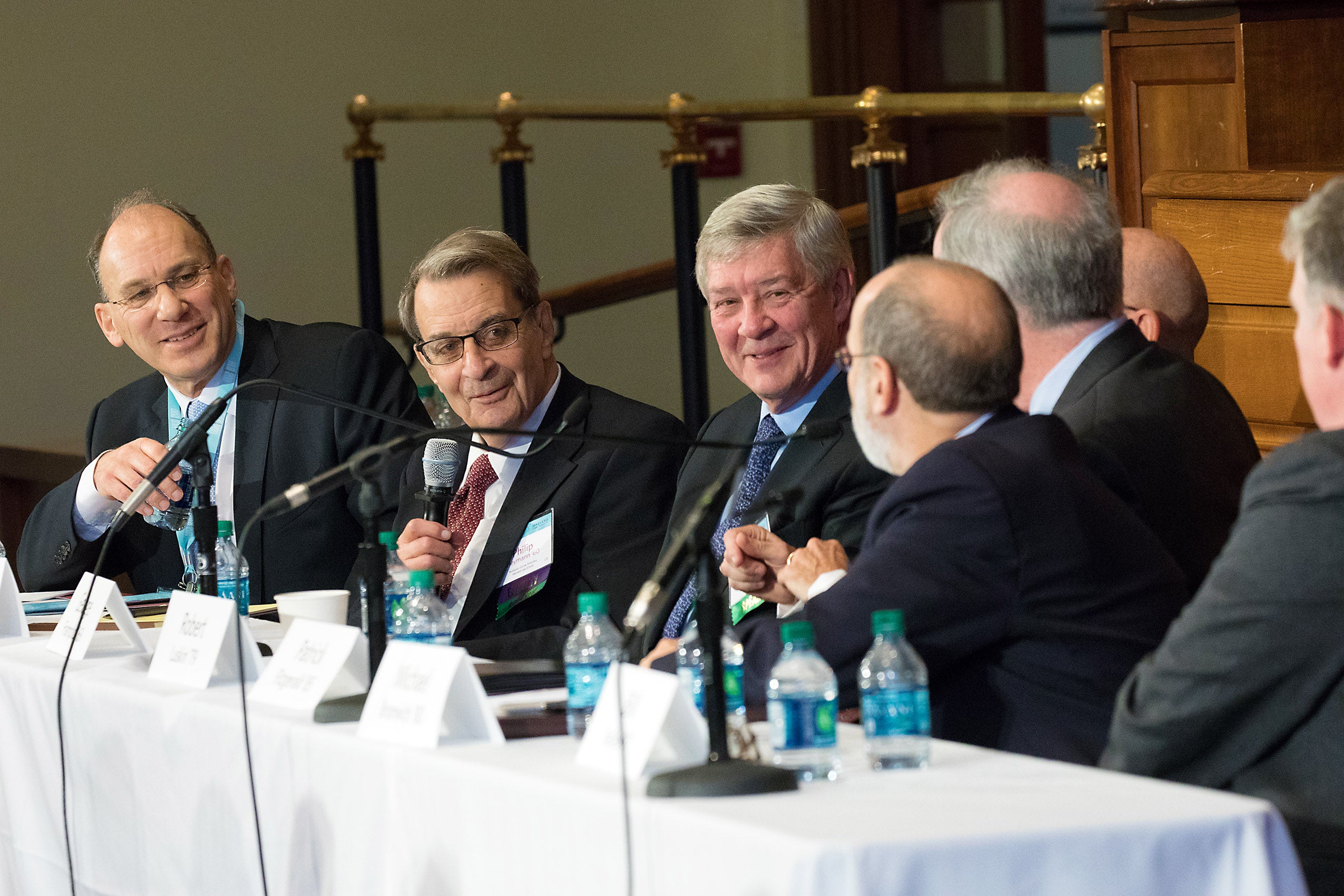Special prosecutors are appointed to investigate the President, or other high-ranking officials, during times of national stress, from Watergate up to the current Robert Mueller investigation over Russian election hacking. As such, their work tends to arouse passion and controversy.
As part of Harvard Law School’s bicentennial summit, a panel, “Special Prosecutors and Independent Counsels: Investigating the White House and the President of the United States,” gathered six Harvard alumni and faculty members who’ve been involved with nearly every high-profile investigation, from Watergate to Whitewater, to the leaking of Valerie Plame’s identity. Moderator David Strauss ’78, currently a visiting professor at HLS, began with the question of whether the institutions we have to investigate a President’s misdeeds are well designed or not. That question alone was enough to get conversation flowing for the next hour.

Philip Heymann ’60, one of Archibald Cox’s first appointments to the Watergate special prosecution team and now a professor emeritus of HLS, noted that the institutions have been redesigned a number of times. During Watergate, for example, Cox’s appointment was made as a trade-off, so that Nixon could get Elliot Richardson appointed as attorney general. At the moment, Mueller is somewhat less independent, working under the guidelines of attorney general Jeff Sessions who maintains firing power. A special prosecutor, Heyman said, shouldn’t be under the threat of firing unless something egregious has been done. This, he said, wasn’t the case when Nixon fired Cox, hence the nationwide backlash.
One problem, Heymann said, has endured since Watergate: that special prosecutors are appointed for offenses that don’t necessarily warrant them. He noted, for instance, that around the time Bill Clinton was being investigated over Monica Lewinsky, another investigation found HUD director Henry Cisneros guilty of lying to the FBI about having a mistress. “I’m not convinced there should be a special prosecutor for trivial crimes. There’s just too much sex there.”
Heymann noted that a lot hinges on how well the prosecutor is chosen, and that the country has been lucky in that regard. “What we want is credibility, a credible account of what a high official has done, and we don’t trust the normal system to do that. We have chosen well, but a lot depends on that. The other question is whether the special prosecutor needs to work the same way the justice department does. Bob Mueller now does, and that makes sense. We are interested in preventing important people from getting away, because they are important, with crimes that are dangerous to the rule of law. If that means the same process is used to prosecute them as everybody else, so be it.”
George T. Frampton Jr ’69, who was also part of the Watergate prosecution team, agreed that pure luck has played a part in the system working. “It’s hard to imagine how you’d write laws to guarantee that the person running a special investigation has the character, the experience and the values to do it right. I think we’ve been extraordinary lucky in that respect.” Further, he noted that there’s no obvious constitutional way to prevent such a prosecutor from being fired. “That’s the same fear that drove me to take all the proto-prosecution memoranda we had on Richard Nixon, basically all the evidence we’d compiled against the president, and to hide it in my grandmother’s basement in Arlington, Virginia.”
Robert Luskin ’79, now an adjunct professor at Georgetown University, brought up the substantial gap between the public’s perception of special prosecutors and the reality—particularly in an era of inflammatory social media. “The perception is a mistrust of the institution: Because it is led by appointees who are appointed by the president, as an institution it can’t be credible. I am obviously speaking from personal experience here, but I have simply never seen a situation where a prosecution has been manipulated for partisan political purposes. I’ve had plenty of experiences where I’ve thought the prosecutors were bloody-minded or venal or completely misguided, but never partisan.” Luskin recalled that he himself was one of those unpopular litigators for a time, when he was retained to defend Karl Rove in the affair of Valerie Plame’s outing as a CIA agent. “A lot of people stopped speaking to me, including my wife who referred to him as Satan.”

One of Luskin’s adversaries in that case was Patrick Fitzgerald ’85. But on Friday morning he concurred with one of Luskin’s points, that press coverage can unnecessarily stoke public opinion. “One thing that confused people in the Valerie Plame case was that by the time I’d been assigned, it had been determined who spoke to newspapers and mentioned her name. But we didn’t know if they knew she was a covert officer or not. It was a mental-state case, not a whodunit.” In other words, it was precisely the kind of story that the press doesn’t have patience for. “Grand juries by their nature are secret. People don’t like reporting that they don’t know what’s going on today, so they make guesstimates.”
Michael Bromwich ’80, founder of the Bromwich Group, echoed the theme of luck, and said that Fitzgerald’s appointment on the Plame case, and currently Mueller’s, were fortunate appointments. But that, he said, is evidence that the system isn’t working. “Remember how contingent it was that Muller was ever appointed,” he said, noting that “extraordinarily bad” appointments have been made in the past, and that some investigations, notably that of Cisneros, have lasted as long as eleven years. “The threshold has become too high,” he said. “We require too much of a public outcry in order to prompt the appointment of a special counsel.”
Bromwich reiterated a proposal he made in 1993, to update the current system by having the inspector general of the Department of Justice be responsible as a “special counsel of waiting” for sensitive matters that involve the prosecution of high-level officials—using existing officials rather than a newly appointed body. The inspector would also produce a “full blown explanatory report” to satisfy the hunger for public knowledge.
The current structure, added William Kelley ’87, of Notre Dame Law School, only works if the media does its job. “The media has to hold everybody involved in these controversies accountable, and to be prudent about it as well. False alarms and hyper-sensational reporting only serve in the long term to dilute the true function of the media, which is to keep people informed on what the government is doing.”
